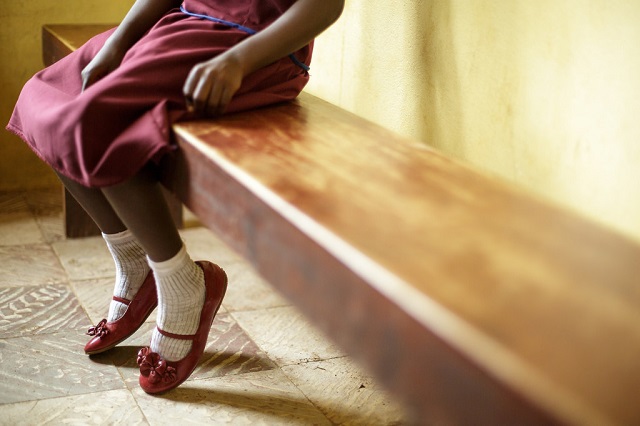The Gambia’s president has outlawed Female Genital Mutilation (FGM), a practice that affects three quarters of women in the West African country—a move that will surely send a message to those who believe the practice is justified.
The Guardian reports that the ban is to come into effect immediately, but it is unknown when legislation to uphold the ban will be written.
FGM has affected more than 125 million girls and women alive today.
The practice is concentrated in 29 African and Middle East countries, most commonly in the Western, Eastern, and Northeastern regions of Asia, in some countries in Asia and the Middle East, and among migrants from these areas to Europe, the United Kingdom, the United Sates, and Canada.
The four major types of FGM involve the removal of the clitoris, inner-and-outer lips of the vagina, and the sewing or stapling together of the two sides of the vulva leaving only a small hole to pass urine and menstruate. The actual procedure varies, but is often performed with a razor blade on infants and girls up to the age of fifteen or so, without anesthetic.
A recent trend towards medical professionals performing the mutilation must be discouraged. This should not legitimize such a horrendous practice.
FGM can lead to hemorrhage, severe pain, cysts, shock, loss of sensitivity, tetanus, sepsis, complications during childbirth, infertility, severe pain during sex, recurring infections and urine retention.
In some cases it is lethal.
At a later date, surgery may be necessary to facilitate childbirth or intercourse.
Unlike male circumcision, female genital mutilation inhibits sexual pleasure. FGM is often called female circumcision, but the comparison can be misleading because it implies that there are no life-long complications/suffering after the procedure and does not address the cultural/religious implications of men viewing women as instruments for their pleasure and pride.
The World Health Organization makes this statement:
“FGM is recognized internationally as a violation of the human rights of girls and women. It reflects deep-rooted inequality between the sexes, and constitutes an extreme form of discrimination against women. It is nearly always carried out on minors and is a violation of the rights of children. The practice also violates a person’s rights to health, security and physical integrity, the right to be free from torture and cruel, inhuman or degrading treatment, and the right to life when the procedure results in death.” ~ WHO/factsheets
FGM is culturally supported by religious leaders of the communities affected and social pressure to conform is a leading cause of the continuation of the practice.
Mothers are convinced that this practice is a way to prepare a girl for marriage, to keep her virtuous and virginal; modestly feminine. The suffering endured as a result of FGM is believed to prevent a woman’s desire for illicit sexual acts.
This cultural/religious male obsession with virgins and virtuous women is a cause for great concern, and we must, as individuals who value human rights stand by every effort to change the practice. I, for one, am pleased that The Gambia is making such a humanitarian choice.
“Jaha Dukureh, an anti-FGM activist whose campaign to end the practice in the country has been supported by the Guardian, spent the past week meeting cabinet ministers in the Gambia and sent them articles from the newspaper to inform them about the issue. ‘I’m really amazed that the president did this. I didn’t expect this in a million years. I’m just really proud of my country and I’m really, really happy,’ she told the Guardian. ‘I think the president cared about the issue, it was just something that was never brought to his attention.’ ” ~ The Guardian
FGM is practiced by Christians, Muslims and Animists alike, in African and Middle Eastern countries.
Overcoming such a strong and long held cultural belief as FGM can only be addressed by re-education and laws that discourage the practice.
While generally I am of the mindset that cultural beliefs are to be respected and honored—we have had enough cultural genocide—there is no way to minimize the violation of human/women’s rights in this instance, nor the suffering it produces.
This is torture, plain and simple, and as a woman, I stand against the mutilation of women for the appeasement of male pride and social standing.
There is really no reason for stating this more diplomatically.
The Gambia is clearing the way. Let us hope that all of us, citizens, journalists, politicians, religious leaders alike, can stand together and protect children and young women from FGM.
Step one is creating further awareness and supporting any and all campaigns like the one led by the Guardian in past years.
Thank you for caring, for reading and for furthering the cause.
References and further reading:
Violence Against Women, Amnesty International
WHO/factsheets
Relephant Read:
Trading Girls For Cows: FGM, Human Rights & Cultural Tradition.
Author: Monika Carless
Editor: Renée Picard
Image: MONUSCO Photos on Flickr



Read 2 comments and reply